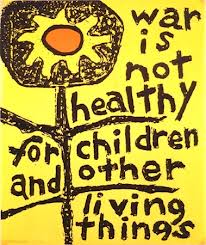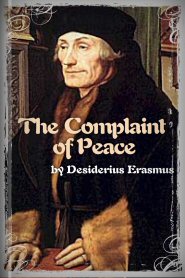Golden Rule
Sea Level Rise, Eniwetok, and Bert Bigelow
by Jerry Elmer
One of the most talked-about consequences of climate change is sea-level rise. The melting glaciers of Greenland could cause a rise of 7 meters, and in March 2014 scientists learned that Greenland’s glaciers are melting much faster  than previously believed. The melting West Antarctic ice shelf could cause an additional sea-level rise of 5 meters – and in May 2014 it was learned that that ice mass is also melting far more quickly than previously known.
than previously believed. The melting West Antarctic ice shelf could cause an additional sea-level rise of 5 meters – and in May 2014 it was learned that that ice mass is also melting far more quickly than previously known.
Two-thirds of the world’s cities with populations above 5 million people would be inundated by a sea level rise of only 3.5 meters – and that is not even accounting for storm surges from increasingly powerful hurricanes (think Katrina and Sandy). Bangladesh, Vietnam, China, Indonesia and the Philippines (the last two are archipelagos) will be particularly vulnerable by the rising sea level, and atoll nations such as Maldives and the Marshall Islands may literally cease to exist.
It is in this context that the long-forgotten name of Bert Bigelow may re-emerge in the twenty-first century. But before I tell you about Bigelow, I need to tell you something about Eniwetok. (more…)
 other living things. It actually proves that defenders of war are growing desperate for arguments.
other living things. It actually proves that defenders of war are growing desperate for arguments. RodrÃguez pre-selected the blogs and I did final copy-editing and formatting but the ideas and representations made here were entirely the result of the eight weeks of group research activities conducted by these young students.Â
RodrÃguez pre-selected the blogs and I did final copy-editing and formatting but the ideas and representations made here were entirely the result of the eight weeks of group research activities conducted by these young students.  a millennium, we ought to be able to judge work on its merit — and we ought to have regular celebrations of Erasmus around the world. Some of his ideas are catching on. His name is familiar in Europe as that of the EU’s student exchange program, named in his honor. We ought perhaps to wonder what oddball ideas these days might catch on in the 2500s — if humanity is around then.
a millennium, we ought to be able to judge work on its merit — and we ought to have regular celebrations of Erasmus around the world. Some of his ideas are catching on. His name is familiar in Europe as that of the EU’s student exchange program, named in his honor. We ought perhaps to wonder what oddball ideas these days might catch on in the 2500s — if humanity is around then. was founder/director of the University of Puerto Rico’s Department of Latin American and Caribbean Studies, founder of the Committee on Human Rights, president of the International PEN Club, and a member of the International Advisory Board of the Peace and Justice Studies Association. He was also this author’s mentor, godfather to my son, and a great friend; it was an honor to be the only non-Puerto Rican to deliver a eulogy at his March 12th funeral. This essay is based on my remarks that afternoon.
was founder/director of the University of Puerto Rico’s Department of Latin American and Caribbean Studies, founder of the Committee on Human Rights, president of the International PEN Club, and a member of the International Advisory Board of the Peace and Justice Studies Association. He was also this author’s mentor, godfather to my son, and a great friend; it was an honor to be the only non-Puerto Rican to deliver a eulogy at his March 12th funeral. This essay is based on my remarks that afternoon.  the problems of inequality caused by the capitalist economy and then focus on our city, Chicago, as a means to understand our places in the economy as working class people of color.  To learn about ourselves in Chicago I use a text written by the Chicago Grassroots Curriculum Taskforce.  The book, Urban Renewal or Urban Removal? is volume one of a planned eight.  Authors of the text include activists, teachers, parents, long-time residents and professors.  It is a grassroots bunch of dedicated organic intellectuals.Â
the problems of inequality caused by the capitalist economy and then focus on our city, Chicago, as a means to understand our places in the economy as working class people of color.  To learn about ourselves in Chicago I use a text written by the Chicago Grassroots Curriculum Taskforce.  The book, Urban Renewal or Urban Removal? is volume one of a planned eight.  Authors of the text include activists, teachers, parents, long-time residents and professors.  It is a grassroots bunch of dedicated organic intellectuals.  of warfare, from February through December 1916). On November 11, 2018, we’ll mark the one hundredth anniversary of the armistice that ended the fighting at the eleventh hour of the eleventh day of the eleventh month.
of warfare, from February through December 1916). On November 11, 2018, we’ll mark the one hundredth anniversary of the armistice that ended the fighting at the eleventh hour of the eleventh day of the eleventh month.